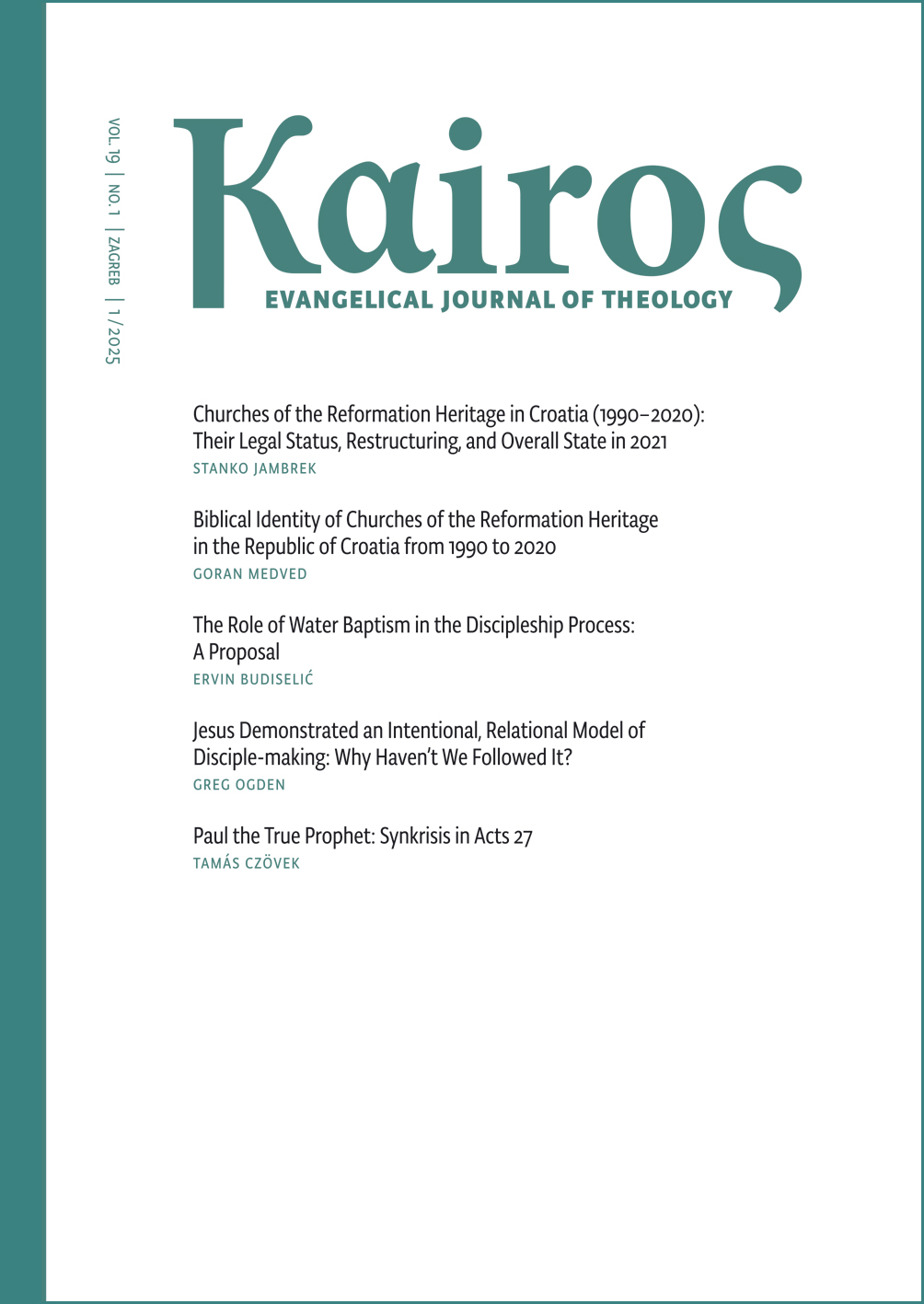Jesus Demonstrated an Intentional, Relational Model of Disciple-making
Why Haven’t We Followed It?
DOI:
https://doi.org/10.32862/k.19.1.4Keywords:
discipleship, relations, internalization, multiplicationAbstract
By reading the Gospels, we can see that Jesus demonstrated an intentional, relational model of disciple-making. In his desire to reach the crowd, Jesus focused on a small group of people with the goal of making disciples who would make more disciples—for at least two valid reasons: internalization and multiplication. Within the context of close-knit relationships, Jesus sought to, in a way, multiply himself through the Twelve. But the question is why the church, to a great extent, did not follow that discipleship model. The article suggests two possible reasons: the first reason is this: We have been preaching a non-discipleship, forgiveness-only gospel. The second reason we have failed to follow the biblical model we observe in the Gospels is that we tend to substitute programs for Jesus’ intentional, relational approach. By contrasting program with relationship, the article offers two provocative conclusions: 1. If we could have made disciples by preaching to people, the job would have been done long ago. 2. Even the greatest preacher who ever lived—Jesus himself—did not rely on his preaching to make disciples. He relied on his personal association.
References
Bruce, A. B. s. a. The Training of the Twelve. Grand Rapids, MI: Christian Classics Ethereal Library https://ccel.org/ccel/b/bruce/twelve/cache/twelve.pdf.
Chole, Alicia Britt. 2001. “Purposeful Proximity — Jesus’ Model of Mentoring.” Enrichment Journal (Spring): 62-65.
Coleman. Robert E. 1964. The Master Plan of Evangelism. Old Tappan, N.J.: Revell.
Eims, Leroy. 1978. The Lost Art of Disciple Making. Colorado Springs, CO: NavPress.
Peterson, Eugene. 1982. Traveling Light. Downers Grove: IVP.
Watson, David. 1982. Called & Committed: World-Changing Discipleship. Wheaton, IL: Harold Shaw Publishers.
Published
Issue
Section
License
Copyright (c) 2025 Kairos : Evangelical Journal of Theology

This work is licensed under a Creative Commons Attribution 4.0 International License.


